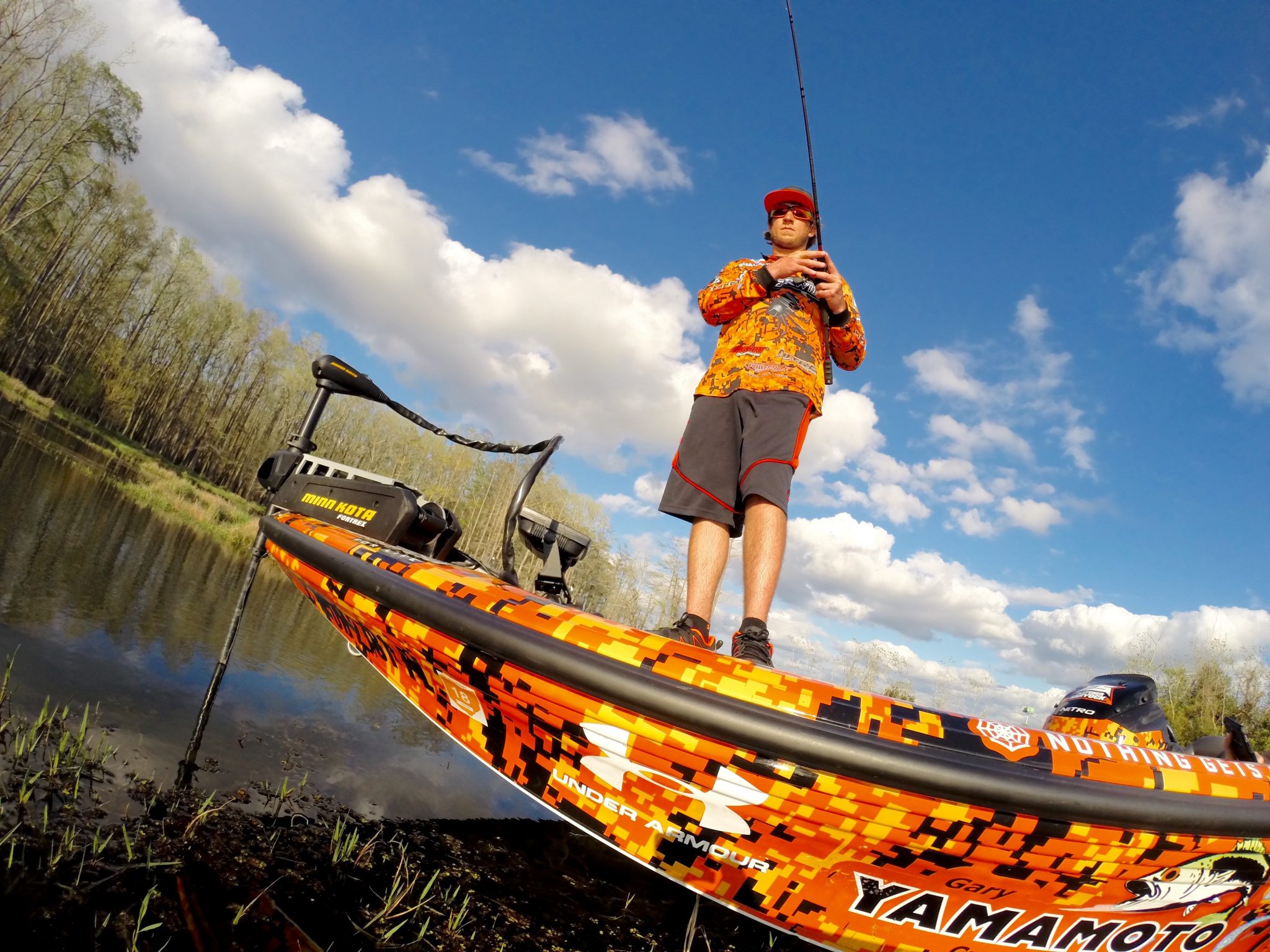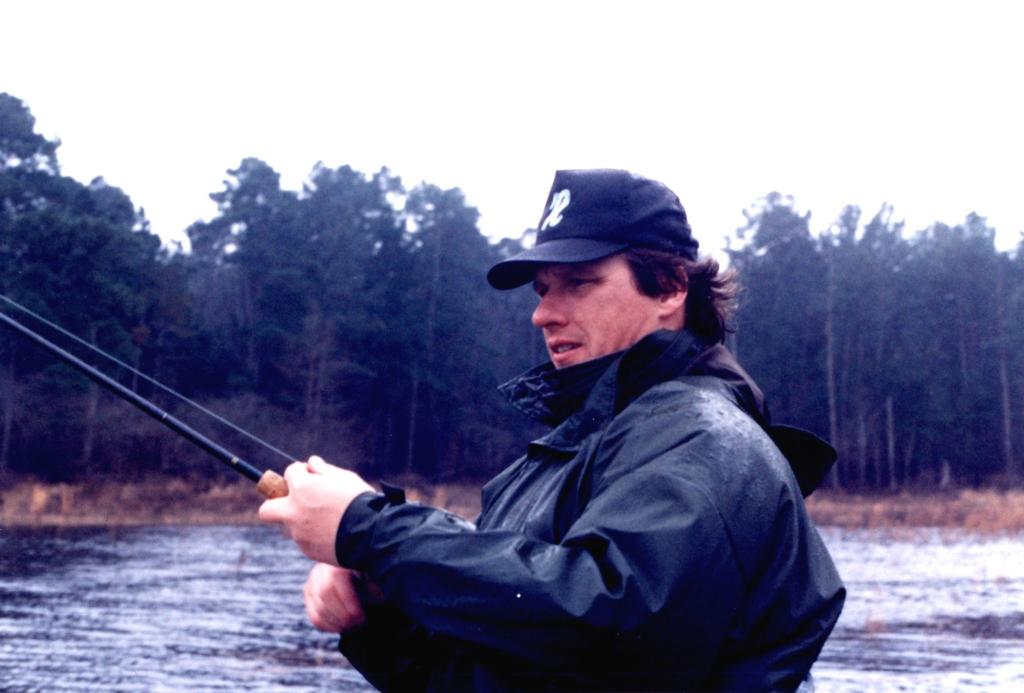- BassEdge.com - Pursue Your Passion
Using Routines And Rituals By Jay T. McNamara

THE EDGE – Episode 222 – Fletcher Shryock
December 15, 2015
THE EDGE – Episode 223 – Pete Ponds
January 1, 2016Fishing is a complex sport. Regardless of how and where you fish, you regularly deal with tons of information, and a zillion variables all of which seems to matter! Trying to catch finny critters seems to require a small arsenal of complex equipment, as well as a full understanding of weather conditions, water fluctuations, and fish migration patterns. To the casual observer, it may appear to be too much, leading to the false conclusion that fishing is a chaotic pastime in which luck, not skill, plays the biggest part.
However, you’re a pretty savvy angler, and because of that, you recognize the difference between those variables you can understand, predict, and control, and those you can’t. Once you know the difference, you can use Routines and Rituals to bring order, stability, and predictability to the variables you can influence. How? Read on!
Practical Routines
From a practical standpoint, there are several facets of fishing that can best be handled by the use of structured routines and checklists. You probably already have a routine maintenance schedule for your boat and towing vehicle (If you don’t, make one now!) In addition, it’s easy to use a regular calendar or day planner to create routines/schedules/lists for inspecting and repairing rods, reels and terminal tackle. You might also develop a pre-trip routine, one that allows time for charging batteries, filling fuel tanks, and assembling additional equipment, like life jackets that actually fit the people in your boat!
A few years ago at a seminar on this topic, a young professional angler in the crowd talked about his pre-tournament routine, and during the question-and-answer session he showed his checklist to the audience. I made what at the time seemed like a throwaway comment, something to the effect of, “You could use a similar checklist when you fish tournaments, and on the back you could make a different list, for when you take your kids or your friends fishing.” The pro angler later told me he nodded, and agreed that was a good idea. I don’t remember that.
What I do remember is this guy calling me about six weeks later, telling me in an excited voice that his checklist probably saved someone’s life. Turns out he went back to his motel room the night of our seminar and did what we had discussed, making a new checklist for what he needed when fishing in non-tournament settings. Somewhere on the list he put this item: Check to make sure each person’s life jacket fits snugly. On the day he called me, the 3 year old daughter of one of his best friends had fallen overboard. “Every one went nuts”, he told me. “We were all in panic mode for several minutes, screaming, pleading, trying to get the boat turned around to pick Melissa up. It all turned out fine,” he said “but it was that list, man, it was that list! If I hadn’t checked and adjusted her life jacket, she could have easily slid right out of it and drowned.”
So, maybe the list of routine things you create won’t have such a dramatic effect. Maybe you will just save yourself the inconvenience of having to go back home to retrieve essential equipment you forgot! Or maybe your routine checklist will spare you the pain and expense of unnecessary repairs. Routines, however, especially those that are written down, increase the likelihood that you’ll remember all of the important things you need to have and do when you go fishing. You should also have a routine and a checklist to use at the end of each trip. Have you ever seen someone’s boat sitting in the middle of the road because the guy was in a hurry and forgot to secure all his tie-down straps? I have, and it’s not a pretty scene. It only takes a few minutes to walk around your boat with your checklist; the headaches and money you save can be substantial.
Psychological Routines
It can be equally valuable for you to develop a mental preparation routine to maximize your effectiveness on the water. You might be inclined to ignore this idea. However, most top athletes use some form of psychological routine to prepare themselves to do their best. I’m willing to bet you could find 10-15 minutes two or three times a week to go through a personalized mental routine. You could practice visualization, mental rehearsal, or relaxation exercises, or you could spend time reviewing your short-term and immediate goals. Mental routines have been shown to have immediate as well as cumulative benefits. We are in the process of assembling an inclusive list of specific mental exercises here on the Bass Edge.com web site. Check in with us as we add more techniques; sooner or later you will find something that can work for you.
Rituals
Many successful athletes rely on pre-competition rituals. You’ve probably heard stories about professional musicians or athletes who eat the same thing the night before a performance, or who drive a specific route to the stadium on game day. Some professional anglers have rituals that include both physical and mental exercises. Historically, clothing has played a big part in competitive rituals. Professionals in several sports are quite particular about what they wear, or how they dress prior to competition. So, if you have a favorite hat or a comfortable pair of pants that you think helps improve your fishing, wear them with pride, knowing you are part of a long tradition. Just remember, it ain’t the shirt!
A number of top competitors also use contemplative rituals involving songs, prayers, and meditation exercises. Each of you must explore your own path in this domain. However, psychological research clearly indicates that people who engage in religious or spiritual rituals are emotionally better off than those who do not. Contemplative, meditative, religious practices are associated with improved concentration, diminished anxiety, and greater self-assurance, these dimensions also being linked to peak performance. Reading, personal reflection, and discussions with friends or family might help you find rituals that work for you.
A Warning
Not all routines and rituals are psychologically healthy, however. In extreme form, over-reliance on a scheduled, systematic, ritualistic approach can lead to a narrow, constricted outlook, and rigid, unimaginative thinking. Some professional performers have been known to become seriously distraught if their routines or rituals are disrupted. You may have known people like this, athletes who put on their equipment in exactly the same order, and who had to take everything off and start over if they mistakenly donned something out of sequence. Other competitors destroy equipment, or burn clothing if they have a poor performance. To most of us, this represents an unreasonable response. However, it is often difficult for individuals to recognize when routines that worked in the past have become extreme and are no longer useful. Here it is best to trust your friends, your family, and your fellow anglers. If more than one person questions your routine or your rituals, you would probably do well to examine them.
For the most part, however, rituals and routines can help decrease ambiguity and uncertainty, minimize distracting, subjective decisions, and allow you to focus your energy on the important variables associated with finding and catching fish. Use routines and rituals to organize predictable dimensions and watch your overall efficiency improve.
——–
Jay T. McNamara Ph.D., L.P. is a psychologist, and also an avid bass and walleye angler. With more than 30 years of professional experience complemented by participation in competitive fishing at local and national levels, he is uniquely qualified illustrate how Performance Psychology principles apply to fishing. His writing has appeared in both recreational and competitive fishing journals.


